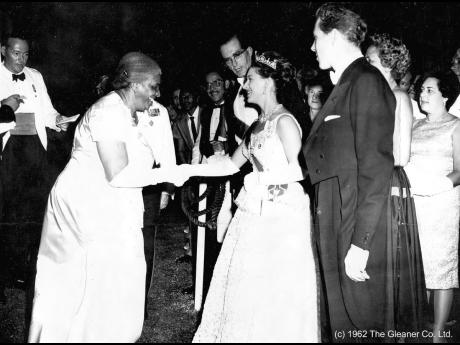Timothy and Lily Mae Burke
Jamaica, in every parish, has had many great primary school teachers who were held in high esteem by their students and in the communities they served. Some rose to national prominence. These men and women made a significant contribution to nation-building, laying the foundation for a new Jamaica they envisioned.
Regrettably, many, even when schools and roads bear their names, are no longer remembered to younger generations as they should. They are remembered by those they taught and maybe by some seniors. I learnt of Timothy and Lily Mae Burke from a past student of Goshen Primary School, Thelma Pottinger Hurst, a member of the diaspora who grew up in the area of Lucky Hill in St Mary. Thelma attended Goshen Primary from about 1941 when Timothy Adolphus Burke was principal.
Timothy Burke was born possibly on June 9, 1878, in Highgate, St Mary. He was the son of Francis Alexander Burke. I was unable to find his mother’s name. He attended Highgate Primary and then Mico Teachers’ Training College; yet another Mico man.
On December 18, 1924, he married Lily Mae Dixon, also a teacher, of Carron Hall, St Mary. Lily Mae was born on about June 11, 1902, to Charles Nathaniel and Susan Dixon, who were in farming and business in Highgate, St Mary. She also attended Highgate Primary and went on to Miss Swaby’s Secondary School and Practical Training Centre in Carron Hall.
Timothy Burke taught at elementary schools in Hanover before being assigned to Goshen Primary School in 1920. There he would remain until his retirement in 1944.
DEVOTED TO EDUCATION
Teacher Burke and his wife, Lily Mae (Miss Lily), were devoted to education, church, and community development.
He was a president of the St Mary Teachers’ Association; an elder and choir master at the Goshen Presbyterian Church and involved in the St Mary branch of the Jamaica Agricultural Society and in the Lucky Hill Farming Cooperative. He was also president of the Lucky Hill Cricket Club and was a justice of the peace.
Timothy Adolphus Burke died at Lucky Hill, on June 16, 1965, aged about 87. The Gleaner described him as having had a brilliant teaching career and as dedicated to community development. The Timothy Burke Basic School, Lucky Hill, was named in his honour.
Lily Mae Burke, JP, was a phenomenal woman, described as a “pioneer of good deeds” and considered one of Jamaica’s notable women, who wanted to build the country from the grass roots up. She was known for her spirit of charity and her hard work. She had an impressive career in her own right. She was a teacher, a social worker, a community organiser, a farmer, in agriculture financing, and was a politician.
Lily Mae was a member of the St Mary school board and a member of the St Mary Parish Council representing the Jamaica Labour Party. In addition, she was parish administrator of the Jamaica Federation of Women and would become national chair in 1962. In 1979, a hall in the Federation’s building at 74 Arnold Road was named in her honour. It seems that in 1964, she was awarded an M.B.E.
Lily Mae Dixon Burke died on March 3, 1968, six months before her 91-year-old mother, Susan. The Burkes had no children of their own.
There is no doubt that Timothy and Lily Mae Burke were highly respected, useful citizens of St Mary. They were among those honoured by the people of that parish at a memorial service at Goshen United Church, Lucky Hill, in July 1970.
There seems to be a need, in the communities and parishes, to keep the memory alive of people of the past who have contributed to Jamaica’s national development. Are they now remembered on Jamaica Day and National Heritage Week? These people should be our role models.
Contributed by Marcia Thomas

